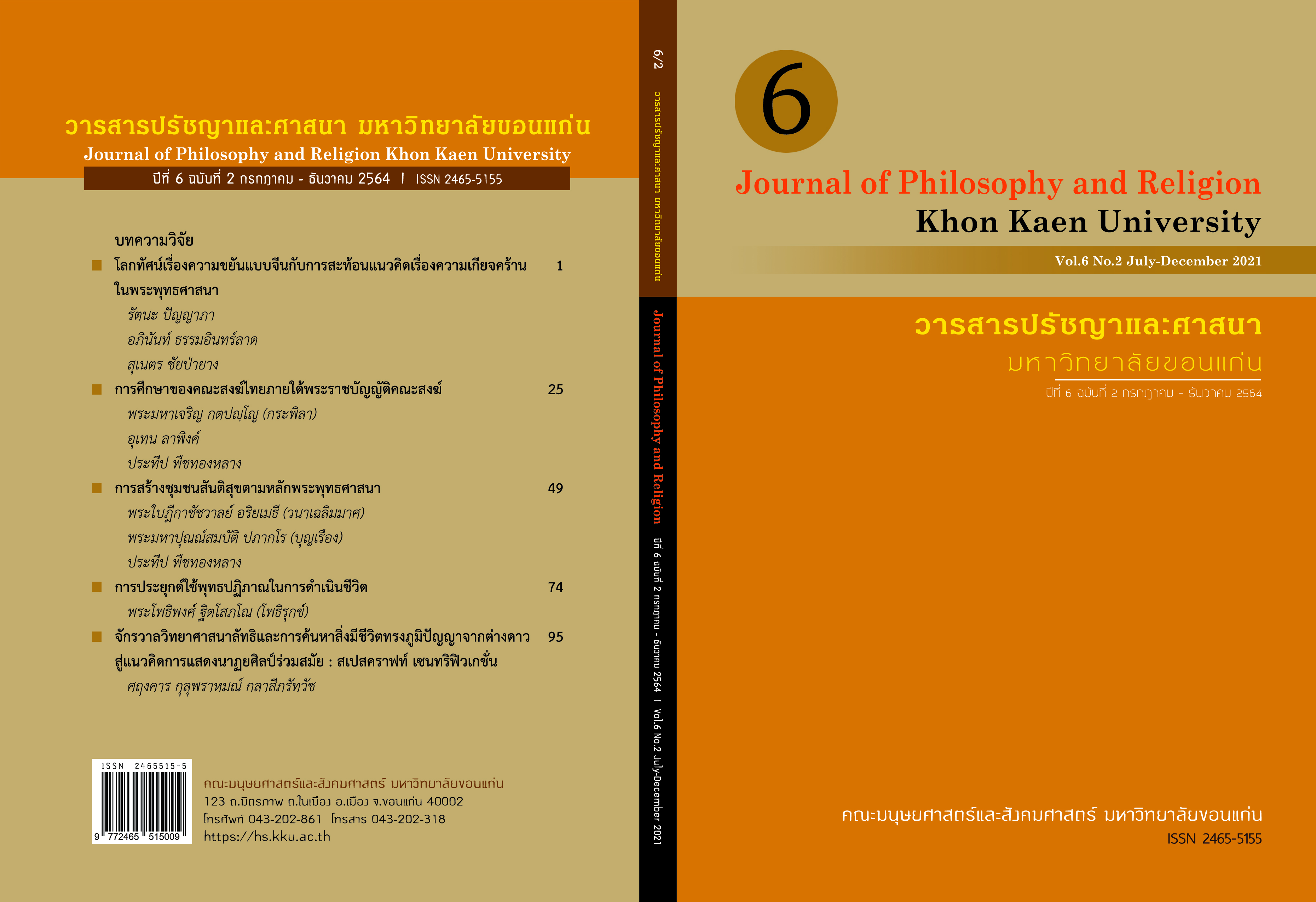โลกทัศน์เรื่องความขยันแบบจีนกับการสะท้อนแนวคิดเรื่องความเกียจคร้านในพระพุทธศาสนา The Chinese worldview of Due Diligence and the Reflection of The Concept of Laziness in Buddhism
Main Article Content
Abstract
บทคัดย่อ
บทความวิชาการนี้มีวัตถุประสงค์เพื่อนำเสนอแนวคิดเรื่องความขี้เกียจ 2 ประเด็น คือ สาเหตุของความเกียจคร้าน และผลลัพธ์ของความเกียจคร้าน โดยเอาโลกทัศน์เรื่องความขยันแบบจีนเป็นตัวอย่างของหลักคิด โลกทัศน์ความขยันแบบจีนพบว่า ความขยันคือพลังจิต ความขยันต้องมีเป้าหมาย แต่ไม่ต้องหวังชื่อเสียง ขยันให้ถูกจังหวะและโอกาส มีความจริงจังถี่ถ้วนในสิ่งที่ทำ มนุษย์ควรขยันโดยไม่หวังพึ่งสิ่งศักดิ์สิทธิ์หรือเทวบันดาล ในด้านสาเหตุของความเกียจคร้านในอัคคัญสูตรพบว่า ความเกียจคร้านเกิดขึ้นมาพร้อม ๆ กับการมีมนุษย์ เกิดจากจิตสันดานเป็นหลัก และมีนิวรณ์ 5 (Nīvaraṇā) เป็นแรงเสริมให้คนเกียจคร้าน มนุษย์จึงจำเป็นต้องบรรเทานิวรณ์ทั้ง 5 ไม่ให้มาสกัดกั้นความเพียรในการทำงานหรือการประกอบอาชีพ ส่วนผลลัพธ์ของความเกียจคร้าน พบว่า ความเกียจคร้านทำให้เสียเวลา ทำให้สิ่งที่ดีงามเสื่อมไป ทำให้สิ่งเลวทรามที่ยังไม่เกิดสามารถเกิดขึ้นได้ นำความเสื่อมมาสู่ชีวิตในหลายมิติโดยเฉพาะด้านเศรษฐกิจ ทำให้ถูกตำหนิติเตียนจากผู้อื่น ไม่มีใครอยากคบหาสมาคมแม้การเอาเป็นคู่ครอง ความเกียจคร้านเป็นอุปสรรคต่อการบรรลุคุณธรรมขั้นสูงในแง่โลกียะคือการไม่ทำให้บรรลุความสำเร็จระดับสูงดังที่ตั้งเป้าหมายไว้ เพราะความเกียจคร้านมลทินคือสนิมเกาะกินจิตใจให้ท้อถอยหดหู่นำไปสู่ความล้มเหลวผิดพลาดได้ง่าย
คำสำคัญ: ความขยัน, ความเกียจคร้าน, พระพุทธศาสนา
Abstract
This article aims to present ideas on 2 issues of laziness in Buddhism: 1) the causes of laziness and 2) the consequences of laziness, using the Chinese diligence worldview as an example of the doctrine. The Chinese diligence worldview is found that as the psychic power, diligence, along with goals but without expecting fame, should be used with the right timing and opportunity, earnestness, not relying on divine or divine inspiration. The cause of laziness in Buddhism was found: Idleness comes with human beings, it is primarily innate. and is supported by the nīvaraṇā 5. Therefore, the fifth hindrance should be eliminated by humans to prevent perseverance in work or occupation. The results of laziness were found: Because of laziness, time is wasted, good things are deteriorated, bad things happened, deterioration arises in life in many dimensions especially the economy, one is blamed by others, no one want to be in a relationship even as a spouse. In addition, laziness thus hinders the attainment of higher virtues, mundane, that is, the failure of achieving high goals. Because the rusty laziness that consumes the mind can be depressing, leading to failure and easy mistakes.
Keywords: Due Diligence, Laziness, Buddhism


